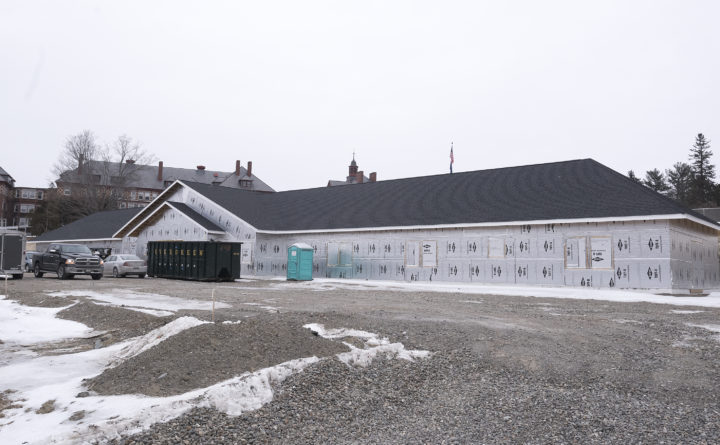
AUGUSTA, Maine — Gov. Janet Mills committed on Wednesday to opening a psychiatric facility in Bangor that was the source of conflict between former Gov. Paul LePage and Democratic lawmakers during the final years of his tenure, but with a different scope than LePage’s plan.
[Subscribe to our free morning newsletter and get the latest headlines in your inbox]
The Bangor facility was part of the former Republican governor’s plan to restore federal funding to Riverview Psychiatric Center in Augusta after it was decertified in 2013 for problems including overcrowding, low staffing levels and the use of stun guns and restraints on patients. Riverview gained recertification last week.
The new facility is under construction on the campus of the Dorothea Dix Psychiatric Center and will be finished in May. Last year, LePage signed an $11.3 million, 30-year lease for the Bangor facility with Ellis Commercial Development. That agreement includes language prohibiting the state from ending the lease to build a similar facility in another location, a move that was seen as largely forcing Mills to open the facility built without legislative approval.
At a news conference on Wednesday, Mills said she would seek legislative approval to operate it as part of the 48-bed Bangor hospital, adding 20 beds. It would cost $6.9 million per year to run, with roughly $4.3 million of that from federal Medicaid dollars.
While LePage planned to use it to house patients who no longer needed hospital-level care, Mills will use it after Riverview’s recertification to add more generally to Maine’s mental health bed count, including people who have been deemed incompetent to stand trial and jail transfers.
“We are going to do a comprehensive look at the range of care that’s needed in communities and residential settings to see if there is an additional need,” said Jeanne Lambrew, commissioner of the Maine Department of Health and Human Services.
LePage’s plan was fraught with controversy, as the former governor took repeated steps to avoid having his plan approved by the Legislature. While Mills, a Democrat, served as attorney general in early 2017, she advised LePage that he would need legislative approval to build a new facility on state land.
Bangor imposed a six-month moratorium on the project later in the year, and ultimately required that any such facility be located on the Dorothea Dix campus. LePage moved the facility’s location to the Dorothea Dix campus and sold three state-owned acres to the developer.
[LePage pegged Bangor psychiatric facility’s cost at $3M, then signed lease costing $11M]
After Mills won the 2018 gubernatorial election, her transition team asked Correct Care Recovery Solutions, the Tennessee company that would have been tasked with running the facility, not to sign a contract with the state.
It agreed and Mills said on Wednesday that state workers would be used there. The governor said the new facility will require more employees, but she didn’t give a specific count and noted that her plan would require less state funding annually than LePage’s $5 million plan.
That money would have come from funds set aside for community mental health services under the terms of a 1990 settlement of a lawsuit against the state. Former Maine Supreme Judicial Court Chief Justice Dan Wathen, who oversees the state’s compliance with the settlement, said in December that using those funds to pay for the facility’s operation would violate the legal settlement.
On Wednesday, Wathen said Mills’ plan reflected an “effective use” of the new facility. He said the system needs more beds for the growing populations of people who have been deemed incompetent to stand trial and are in jail. He said people needing services in jails have largely been held out of the system for a lack of capacity.
“I think it’s a good, imaginative solution to a problem that need not have been, a problem that was created politically and ideologically,” said Sen. Geoff Gratwick, D-Bangor, the co-chair of the Legislature’s health and human services committee. “I like that we’re increasing the capacity of Dorothea Dix.”
BDN reporter Charles Eichacker contributed to this report.
This article originally appeared on www.bangordailynews.com.







